— How Solar Works
Clean, renewable solar energy generates affordable reliable energy without producing air pollution or greenhouse gases.
Unlike fossil fuels, solar energy results in no carbon pollution or emissions that cause respiratory and other health problems, and do not release heavy metals or hazardous gases. Further, pollinator habitat and native vegetation planted underneath panels improves soil fertility and reduces erosion, bolstering the health of the local ecosystem.
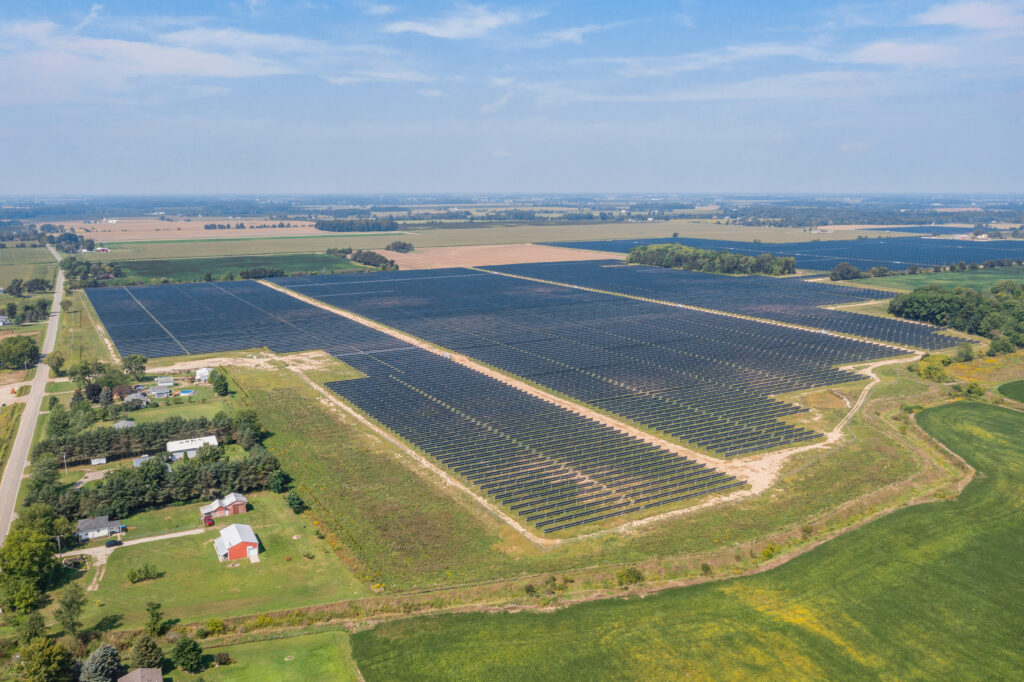
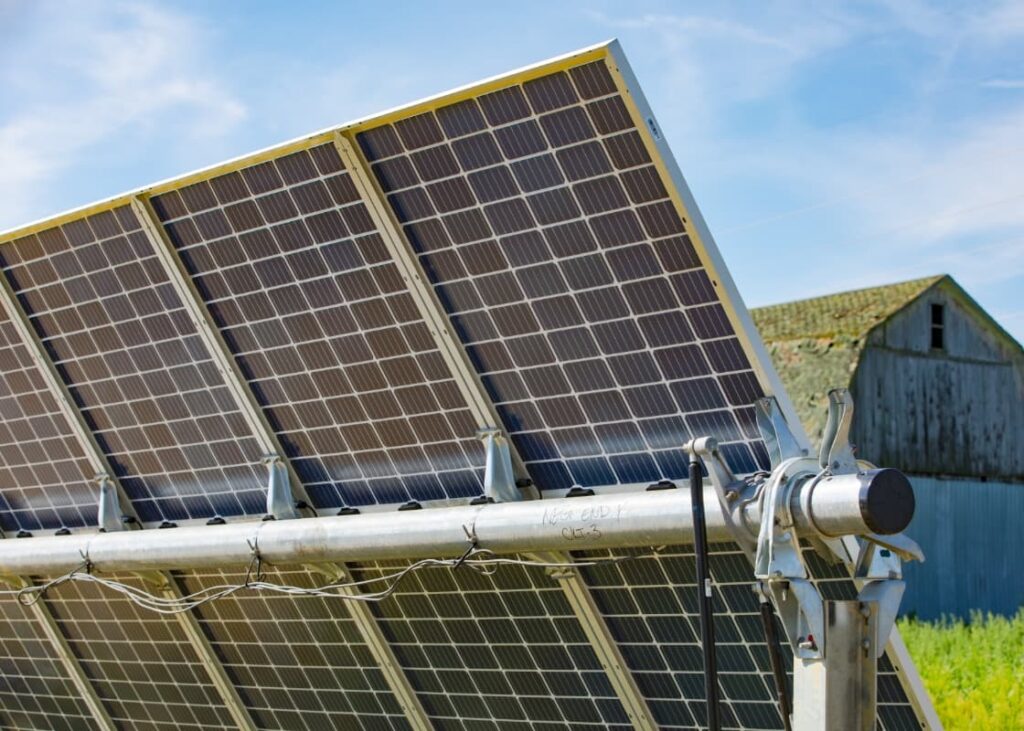
The panels and equipment will be located on about one-third of the project area, with the balance of the site open. The modern crystalline silicon PV solar panels that will be used are about as tall as full-grown corn.
In addition to being low to the ground, solar-generating facilities do not produce any emissions, are quiet, and do not create odors, harmful byproducts or toxic substances.
How the Panels Work
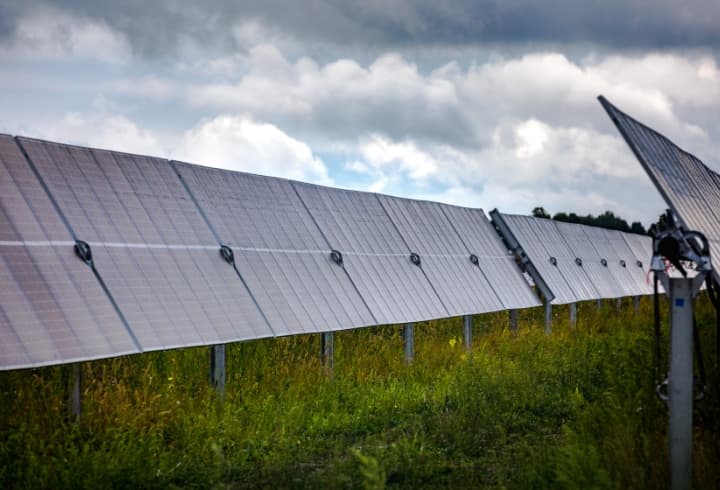
The panels that will be used by the Headland Solar project are slightly larger versions of the panels used on residential and commercial rooftop systems.
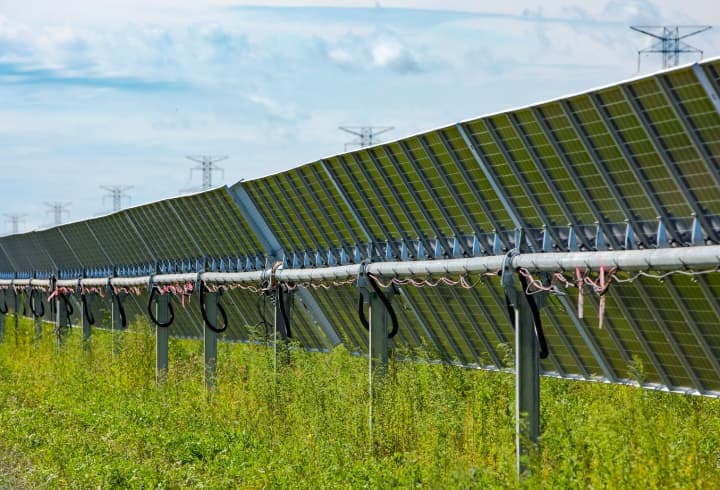
These panels will be arranged on racks that rotate to track the sun and may incorporate a recent technological advance, allowing generation of energy from light on both the front and the back of the panel. These “bi-facial panels” are especially useful in the Midwest, where they capture light reflected by snow.
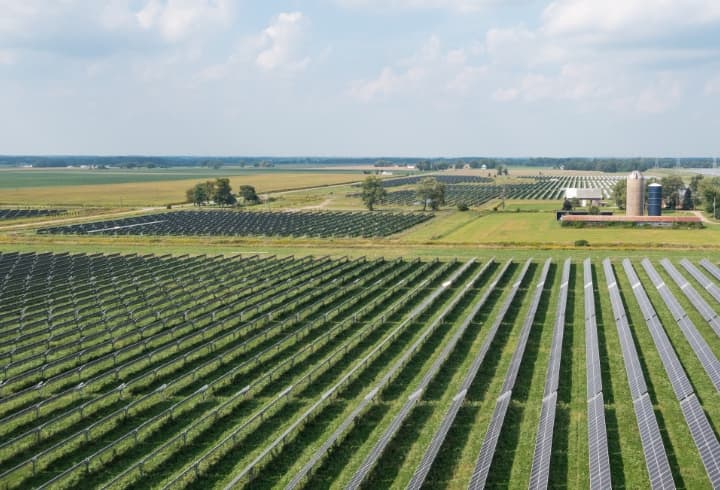
The solar panels will be mounted on racks attached to steel posts that have been driven into the ground. Rows of panels spaced about 18-26 feet apart will be arranged along a north-south axis, and the panels will rotate from east to west throughout the day to capture the sun’s energy.
Get In Touch
If you would like to learn more about Headland Solar, please reach out to our team, or send a letter to show your support!
